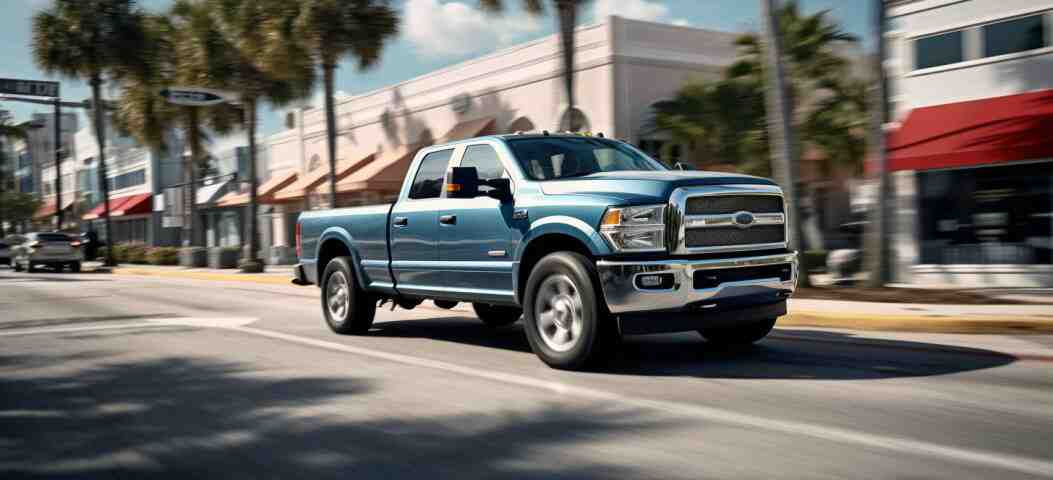10 Essential Vehicle Checks Before you Hit the Road for Spring Break

Ideas on Healthy Spring Activities in Florida
April 1, 2024
Which Produce has the Most Pesticides?
April 1, 202410 Essential Vehicle Checks Before You Hit the Road for Spring Break
As the weather warms up and spring/summer breaks approach, many families are gearing up for road trips and vacations. Before the rubber hits the road and your family trips start, it is crucial to ensure that your vehicle is in top condition to handle the journey smoothly. Dr. Aaron Workman of one of the highest rated auto injury care medical facilities in Kentucky, gives sound advice on essential vehicle checks before taking a trip.
Here are 10 checks he recommends to perform on your vehicle before hitting the road for your spring vacation:
- Tire Pressure and Tread Depth:
Inspect your tires for adequate tread depth and ensure that they are properly inflated to the manufacturer’s recommended pressure. This information can be found on your tires and also in your vehicle’s manual. Low tire pressure can affect fuel efficiency and handling, while worn-out tread can be an accident waiting to happen. Inspect your tires for any screws, nails, or foreign damaging items your tires may have picked up. This is the time to check your spare and whatever items you need to change a flat. I like to know where my spare is, how I access it, where my jack is, the jack spots on my vehicle, a tire plug kit, and a small air pump. These things get you back on the road fast if you have a flat tire while traveling.
- Fluid Levels:
Check the levels of essential fluids in your vehicle, including engine oil and windshield washer fluid. Top off any fluids (oil, brake fluid, coolant, windshield washer fluid) that are low and look for signs of leaks or dirty fluids.
- Battery Health:
Inspect your vehicle’s battery for signs of corrosion, leaks, or damage. Ensure that the terminals are clean and securely connected. Consider having the battery tested to ensure that it’s holding a charge effectively. You will find most local automotive stores have the ability to test your battery if you need help and they will gladly replace it if needed.
- Brakes:
Test your brakes for responsiveness and listen for any unusual noises or vibrations. If your brakes are making sounds or seem less than optimal have them replaced before embarking on your trip. Driving in unfamiliar places may require quick use of the brakes to avoid accidents.
- Lights and Signals:
Test all lights and signals, including headlights, brake lights, turn signals, and hazard lights. Replace any burnt-out bulbs and ensure that your lights are clean and properly aligned for maximum visibility. If your bulbs have lost their brightness, you can replace those for better night vision. There is a myriad of different cost-effective bulbs available at any local auto store that should fit your needs.
- Wipers and Wiper Fluid:
Traveling in a downpour is that last place you want to determine if your wiper blades need to be replaced. Inspect your windshield wipers for signs of wear and tear, such as cracks, dry rotting, or fraying. If you live in regions with ice during the winter months, it can sometimes do a number on the wiper blades so replace those with any signs of damage.
- AC System:
Test your vehicle’s heating and air conditioning system to ensure that it’s functioning correctly. In the turn from winter to spring you may not have had a proper opportunity to check your AC for nice cold air. If you are traveling to a warmer climate you want to make sure there is proper airflow and temperature control before leaving. You should also check your cabin air filters and replace them if they are dirty.
- Belts and Hoses:
If you have an older vehicle, look over the condition of your belts and hoses for signs of wear, cracking, or deterioration. Replace any worn or damaged components to prevent unexpected failures while on the road. If these things need repaired while on your trip, you are likely to pay an exuberant amount of money for emergency repair.
- Suspension and Steering:
Check your vehicle’s suspension and steering components for signs of damage or excessive wear. Pay attention to unusual noises, vibrations, or uneven tire wear, which could indicate issues that need to be addressed before a long trip.
- Emergency Kit and Documentation:
Lastly, ensure that your vehicle is equipped with an emergency kit containing essential supplies such as a first-aid kit, jumper cables, flashlight, blankets depending on your climate, and non-perishable snacks depending on the travel region. Know where your documentation is such as your driver’s license, vehicle registration, insurance information, and emergency contact numbers.
Vacation traveling days can be fun and exciting but can also be very stressful. By performing these 10 checks before embarking on your spring vacation, you can help ensure that your vehicle is in optimal condition for a safe and enjoyable trip. Taking the time to inspect and maintain your vehicle can provide peace of mind and minimize the risk of unexpected breakdowns or accidents on the road.
— This article is written by Aaron Workman, DC, one of the members of Chambers Medical Group’s team of car accident chiropractors who offer a variety of treatments and therapies ranging from diagnostic testing to various soft tissue therapies for car accidents and injuries in Kentucky.
- Car Accident Medical Clinic in Tampa
- Car Accident Medical Clinic in Plant City
- Car Accident Medical Clinic in Brandon
- Car Accident Medical Clinic in Lakeland
- Car Accident Medical Clinic in Sarasota
- Car Accident Medical Clinic in Louisville
- Car Accident Medical Clinic in Lexington
- Car Accident Medical Clinic in Florence




